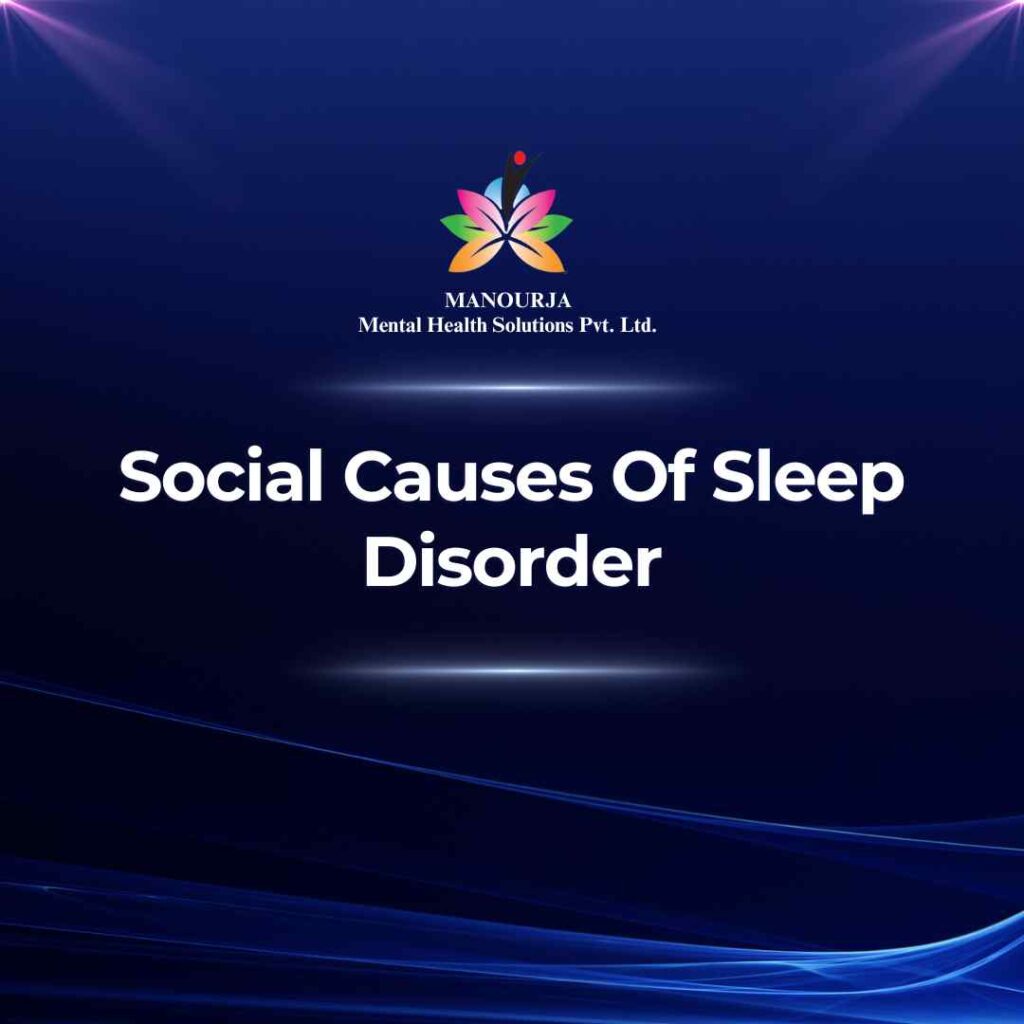Social Causes of Sleep Disorder

Sleep disorders can also be influenced by a variety of social factors that impact individuals’ lifestyles, behavior, and overall health.
Here are some of the prominent social causes of sleep disorders:
- Stress and Anxiety: High levels of stress and anxiety, often stemming from job pressures, personal relationships, or significant life changes, can severely impact sleep quality. Stress triggers the body’s fight or flight response, which can make it difficult to relax and fall asleep.
- Work Schedule and Demands: Shift work, long hours, or jobs with high mental and emotional demands can disrupt natural sleep patterns. People who work night shifts or rotating shifts are particularly vulnerable to developing sleep disorders because their work schedules interfere with their circadian rhythm.
- Technology Use: Prolonged exposure to screens, especially before bedtime, can interfere with sleep. The blue light emitted by phones, tablets, and computers inhibits the production of melatonin, the hormone that regulates sleep-wake cycles, making it harder to fall asleep.
- Social and Family Obligations: Activities and responsibilities, including social gatherings, caregiving for children or elderly family members, and other commitments, can reduce available sleep time or lead to irregular sleep schedules.
- Economic Stressors: Financial difficulties can lead to anxiety and stress, which in turn disrupt sleep. Worrying about finances is a common cause of insomnia and other sleep disturbances.
- Lifestyle Choices: Consumption of alcohol, nicotine, and caffeine can significantly impact sleep quality. Social drinking or smoking, especially close to bedtime, disrupts the sleep cycle and can exacerbate sleep disorders.
- Living Conditions: Overcrowded or noisy living environments can prevent restful sleep. This is particularly true in urban areas or shared living spaces where noise and space constraints can be significant.
- Cultural Attitudes Toward Sleep: In some societies, there is a cultural undervaluation of sleep, where staying up late or working long hours is seen as a badge of honor. This attitude can lead to chronic sleep deprivation.
- Social Isolation: Loneliness and lack of social interactions can negatively affect mental health and sleep patterns. Feeling isolated or unsupported can increase stress and anxiety, which are detrimental to good sleep.
- Marital/Relationship Conflict: Tensions in personal relationships, especially those within the household, can lead to disrupted sleep either directly through conflict or indirectly through the stress it causes.
Addressing the social causes of sleep disorders often requires a multifaceted approach, including lifestyle adjustments, counseling, and sometimes medical intervention to manage symptoms effectively. Understanding the role of social factors is crucial for developing a comprehensive treatment plan that considers all aspects of a person’s life
At MANOURJA, we believe in the transformative power of counseling. Our experienced therapists offer a safe and supportive space where you can explore your thoughts, emotions, and challenges. Through personalized counselling sessions, we’ll work together to develop coping strategies, build resilience, and achieve lasting positive change. Discover the path to a healthier, happier you with MANOURJA counselling services.
MANOURJA Rehabilitation Services
At MANOURJA, we’re dedicated to helping you in rebuild your life, after difficult times. Our rehabilitation services focus on understanding what you need to move forward, whether you’re recovering from addiction, trauma, or any psychological – social challenges. We create personalized plans, that are all about helping you, regain your strength and find hope again. With a caring team by your side, you’ll have the support to make real progress and take steps toward a brighter, healthier future.
.
